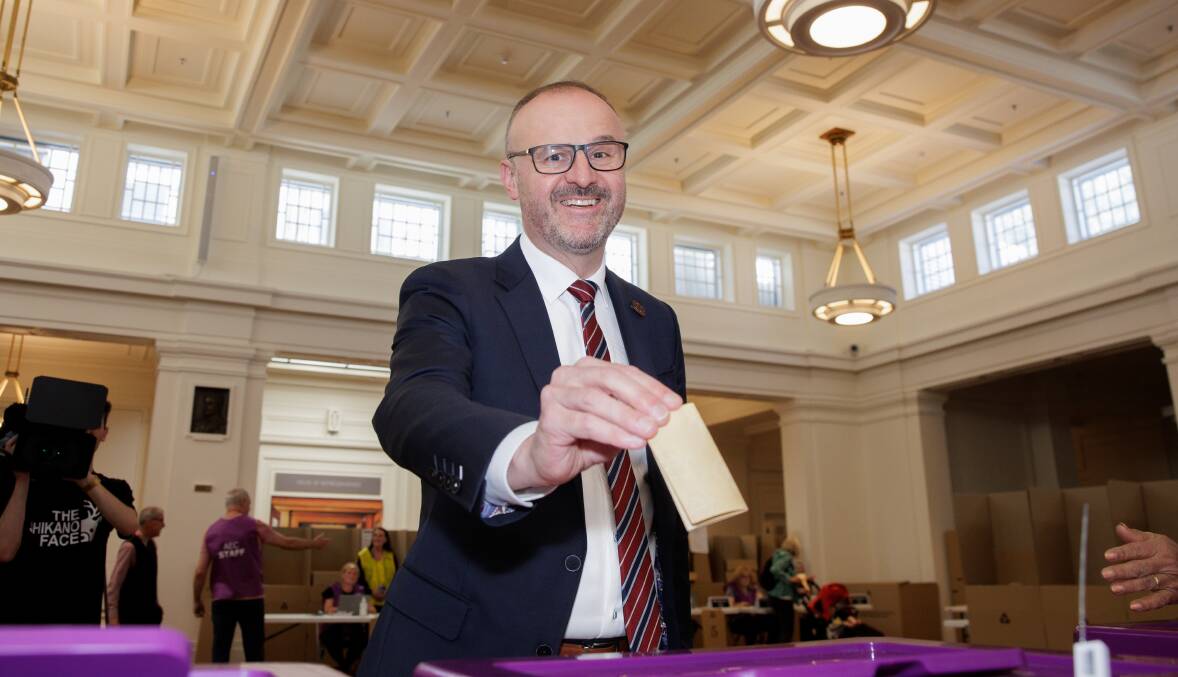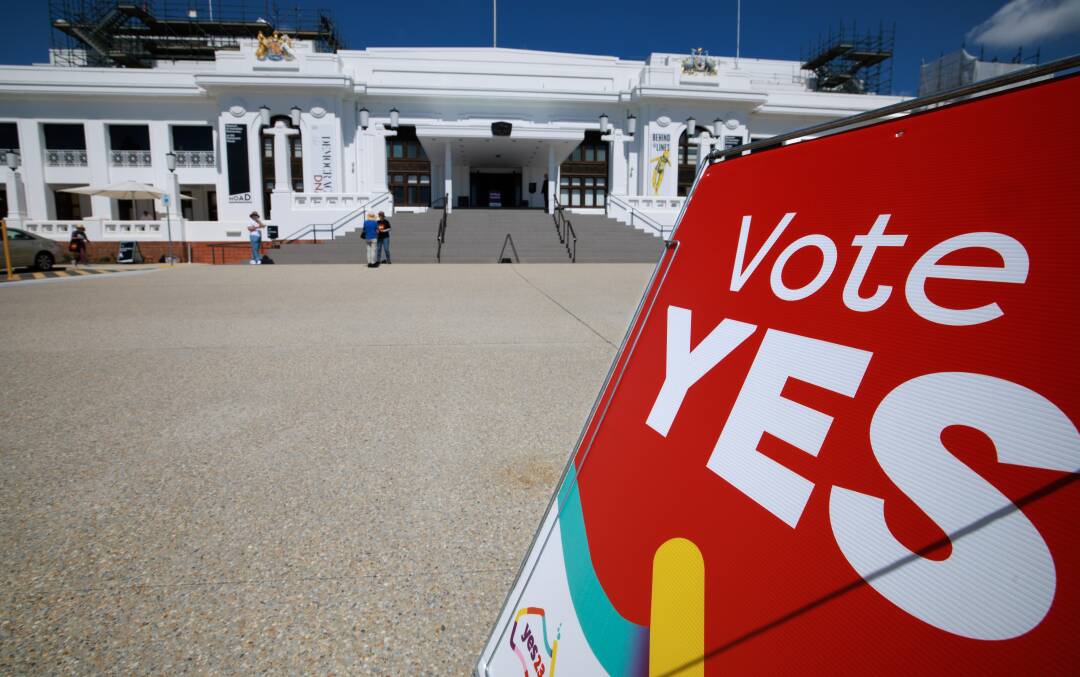Chief Minister Andrew Barr says he is a little sad and apprehensive about the result he expects will be returned in the Voice to Parliament referendum on Saturday night.
But there were millions of undecided voters around the country and the "yes" campaign's task was not over in any sense, he said.
Mr Barr cast his ballot in the referendum at Old Parliament House on Tuesday afternoon, encouraging voters afterwards to vote in favour of the Voice.
"Clearly, 'yes' is the underdog at this point," Mr Barr said.
"I said at the start, I hoped that the ACT would have the highest 'yes' vote in the country. I still think we will. I'm still confident that that will be over 50 per cent of the vote.
"But it may not be the sort of levels of support that we saw for marriage equality only six years ago."

Mr Barr said he had hoped the referendum campaign could deliver a moment of unity for Australia.
"But I'm also a realist. I can see what the opinion polls are showing and that is a tough, tough ask for the 'yes' case from here," he said.
Mr Barr said the ACT had essentially had a Voice equivalent in the Aboriginal and Torres Strait Islander Elected Body for 15 years.
"The world hasn't ended in the ACT. In fact, it's been a positive for Aboriginal and Torres Strait Islander people. It's not perfect. Not every issue has been solved and no one is suggesting that the Voice will be able to solve every single issue, but it is an important step forward," he said.
"That's why I voted 'yes' today: recognition, respect and listening."
Mr Barr said the territory's elected body had been instrumental in achieving outcomes, large and small, for First Nations people in the capital, including long-term agreements in justice, education and health, along with improving bus services and community sporting facilities.

"I'm not suggesting that everything is perfect - and there is no area of government where everything is perfect - but this has made a difference and I think it could make a difference at a national level," he said.
Mr Barr said there would need to be a period of healing and reflection following the referendum result, and decisions on what to do next would need to be made in partnership with Aboriginal and Torres Strait Islander people.
"I wanted Australia to be a republic and I wanted marriage equality. The campaign for both, we won one and we lost one. So I understand that for many people, this will be deeply and intensely felt, whatever the result is on Saturday," he said.
Mr Barr praised Australia's long-standing democratic traditions, even when that threw up challenges for the country.
"At the end of the day, we will accept the democratic result. And we'll move forward and move on and do what is necessary that follows from this process," he said.
"Not every country can say that and even not every democracy, sadly at the moment, can say that they will accept a result and move forward."







